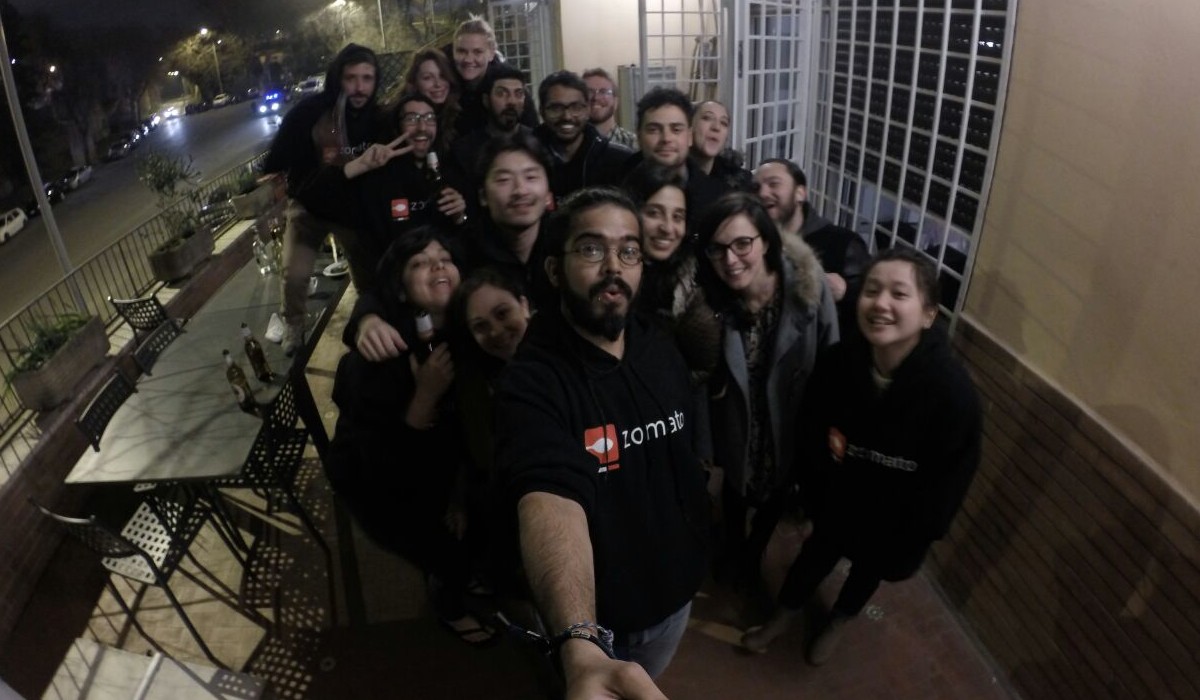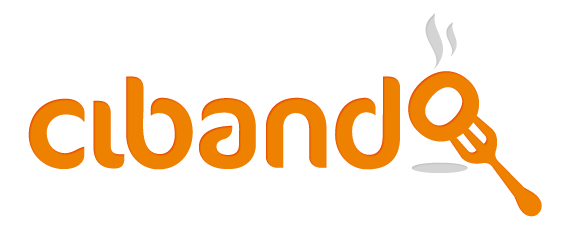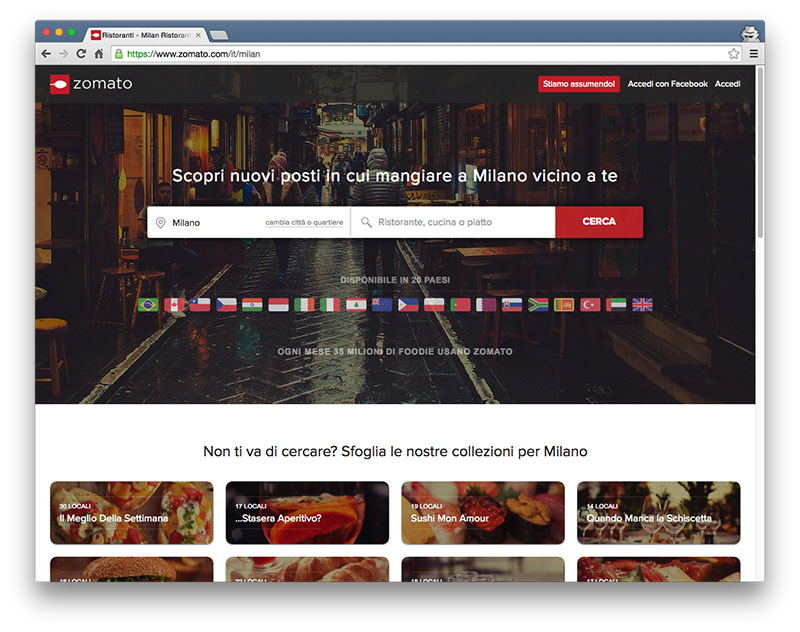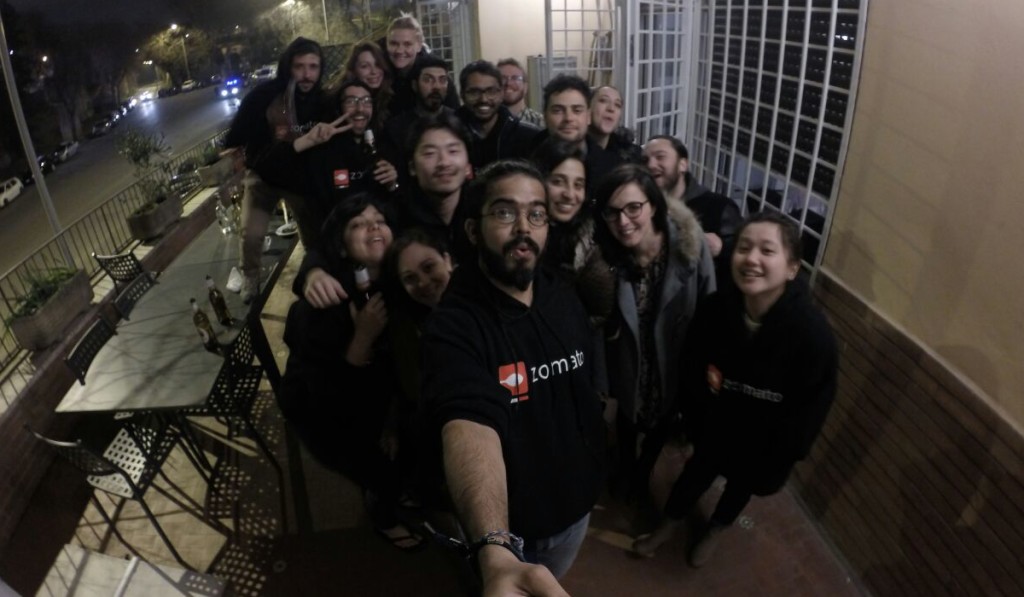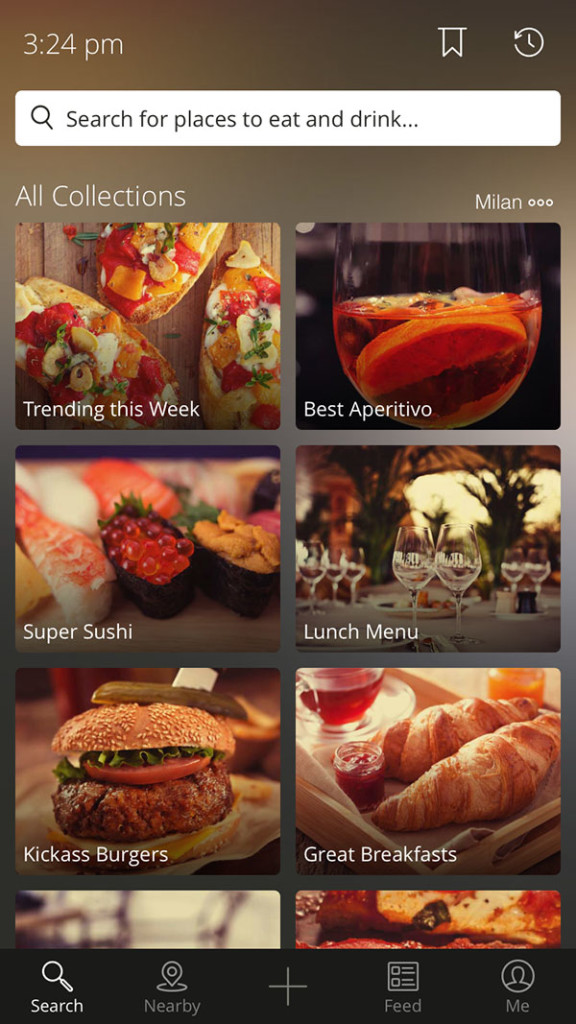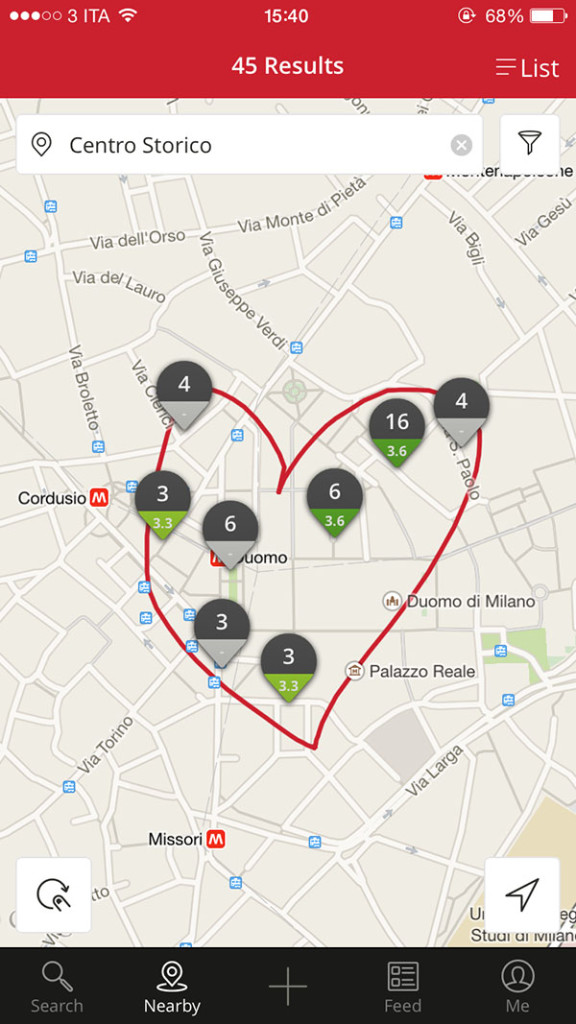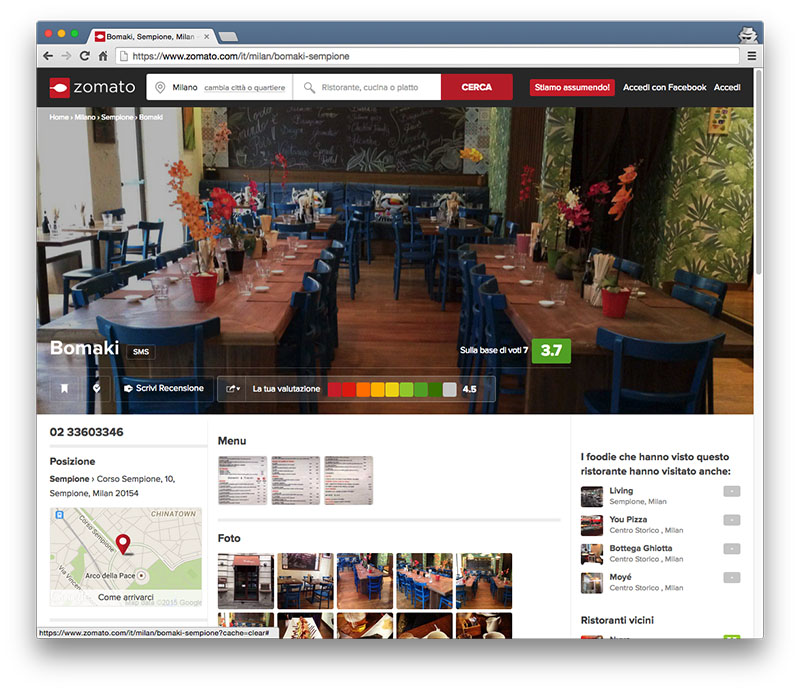Con Zomato ci addentriamo nel bel mezzo del mercato food, un settore in grande fermento nel nostro Paese, in grado di offrire tantissime opportunità, a partire dal bio e dai prodotti a chilometro zero fino ad arrivare ai prodotti certificati o eco-sostenibili, che oggi incentivano un consumo alimentare più attento e sostenibile.
Quello del food è un settore molto particolare delle web application. Una startup attiva in questo campo può cercare il proprio business con diversi mezzi: con la costruzione di un’ampia community di consumatory, attraverso la progettazione di una piattaforma pubblicitaria e di offerte, integrando il food con il settore turistico. Con la recente acquisizione di Cibando, servizio online di ricerca di ristoranti, Zomato vuole creare la guida più completa e aggiornata di ristoranti presente sul mercato italiano.
Per conoscere più da vicino la storia e il funzionamento di Zomato, abbiamo intervistato di persona Guk kim, Country Manager Italia di Zomato, nonché fondatore e CEO di Cibando.
Guk, sappiamo che tu sei il fondatore di Cibando. Raccontaci la tua esperienza e il percorso che ti ha portato a diventare oggi country manager di Zomato.
Cibando è nata cinque anni fa, nel 2010. In quel periodo vivevo a Roma ma mi recavo spesso a Milano per lavoro. Quando ero lì e avevo voglia di andare a mangiare fuori n qualche locale diverso dal solito, non sapevo a quale sito o piattaforma rivolgermi per avere informazioni o consigli riguardo tutti i ristoranti presenti in città. Da lì nacque la mia esigenza di creare un’applicazione, consultabile facilmente anche dal proprio cellulare, la quale fornisse la posizione e la descrizione di tutti i ristoranti disponibili e le recensioni degli utenti con le loro opinioni e valutazioni personali. Nel 2011 abbiamo raccolto dei fondi da parte di investitori tedeschi e da quel momento l’applicazione ha conosciuto un successo molto vasto e allo stesso tempo inaspettato fino a che, quest’anno, non è stata acquisita da parte della grande multinazionale Zomato. Attualmente ricopro il ruolo di Country Manager Italia per conto di Zomato.
Se non sbagliamo sei nato a Seul, ma ormai sei attivo qui da diversi anni. Come ti trovi qui? Hai incontrato difficoltà a inserirti nel mondo del lavoro? Ti senti integrato nella nostra società?
Sì, sono nato in Corea del Sud, ma da quando avevo 5 anni mi sono trasferito in Italia con la mia famiglia. Inizialmente risiedevamo a Pompei, poi ci siamo spostati a Roma, dove mi sono laureato in Economia and Business Administration nel 2010 alla John Cabot University, e ora mi sono spostato definitivamente a Milano, dove vivo insieme a mia moglie. Ho iniziato a entrare nel mondo dell’imprenditoria molto presto, a soli 16 anni. Prima di fondare Cibando, ho dato vita, inoltre, a diversi siti web che hanno avuto un discreto successo, tra cui Mobatar S.r.l. e FreePoverty.com. Avendo vissuto in Italia da quando ero un bambino, ormai mi sento più italiano che coreano e, peraltro, lo parlo anche meglio della mia lingua madre. Non ho mai incontrato serie difficoltà di accettazione o subito episodi di razzismo nella mia vita privata o lavorativa: superato l’ostacolo della diffidenza iniziale per via del mio aspetto esteriore, le persone imparano a conoscerti per quello che sei realmente e alla fine comprendono che io sono italiano tanto quanto lo sono loro.
Com’è nata e in cosa consiste Zomato?
Zomato è stata fondata nel 2008 da due imprenditori indiani, Deepinder Goyal, laureato in Matematica ed Informatica nel 2005 presso l’IIT Delhi, e Pankaj Chaddah, laureato in Ingegneria Meccanica sempre all’IIT Delhi. Entrambi hanno lavorato come management consultant per Bain & Company, società internazionale di consulenza strategica, a New Delhi. È stato proprio in quell’ufficio che Deepinder sviluppò l’idea della creazione di un servizio di informazioni online per i ristoranti: poiché era solito collezionare la lista dei menù take-away o delivery dei ristoranti da cui ordinava i suoi pasti, i colleghi si erano ormai abituati a chiedere a lui i menù da consultare per ordinare da mangiare. Decise così di aprire un proprio sito personale dal suo appartamento, Zomato appunto, che riscosse talmente tanto successo che nel 2008 Deepinder lasciò Bain e si mise a capo della sua nuova azienda, che da allora supervisiona dall’alto. Pankaj, invece, è stato il responsabile dello sviluppo mobile di Zomato e della distribuzione sulle varie piattaforme; oggi coordina vendite e operazioni di Zomato nei mercati locali e internazionali.
Zomato può essere definita una grande piattaforma mondiale di servizio mobile di ricerca per ristoranti, che coinvolge oltre 314mila attività in 20 Paesi del mondo. Sul mercato da pochissimi anni, Zomato è diventata una società da 660 milioni di dollari, acquisendo aziende in tutto il mondo e annunciando l’ingresso nel mercato nordamericano con l’acquisizione della famosa società americana Urbanspoon.
Con l’acquisizione di Cibando, ora, l’azienda di origine indiana inizia a muovere i suoi primi passi anche sul territorio italiano. Questa operazione ha portato con sé un investimento di 6 milioni di dollari nei prossimi due anni e prevede una crescita del numero dei dipendenti fino a 150-200 unità in più. Quindi la perdita di indipendenza verrà più che compensata da un aumento di occupazione e investimenti nel nostro Paese.
Cos’è che la differenzia dalle altre aziende e servizi web attivi nel mondo della gastronomia?
Due sono le principali differenze con le altre aziende concorrenti nel settore food: innanzitutto noi abbiamo dipendenti sul campo che hanno il compito di visitare ogni singolo ristorante presente sul territorio cittadino e aggiornare le relative informazioni sul sito di Zomato, almeno ogni 3 mesi. Per ora abbiamo già catalogato quasi 18.000 ristoranti, ma credo che presto diventeranno più di 20.000, perché abbiamo intenzione di raccogliere informazioni anche sui locali di cittadine limitrofe, come Ostia, Fregene e Fiumicino. L’altro aspetto fondamentale e innovativo è la digitalizzazione dei menù di tutti i ristoranti presenti sul nostro sito: in questo modo gli utenti possono farsi un’idea già da casa sull’offerta qualità-prezzo del locale scelto. Inoltre, abbiamo anche altri addetti che si occupano esclusivamente di quality management per quel che riguarda le recensioni, in modo tale da evitare spam o commenti non veritieri.
Com’è stato l’impatto con il pubblico, finora? Quali sono i tuoi progetti per il futuro della tua azienda?
Il 10 marzo c’è stato il lancio ufficiale di Zomato in Italia e già in queste poche settimane di attività abbiamo avuto un ottimo riscontro da parte del pubblico. Zomato in Italia copre, per ora, solo le città di Roma e Milano, che e rappresentavano anche i due mercati principali su cui si focalizzava Cibando, ma per il futuro prevediamo un’espansione progressiva e servizi aggiuntivi: stiamo pensando se fornire la possibilità di prenotare direttamente dal sito e di usufruire del food delivery, abbiamo intenzione di aprire altri uffici e vorremmo arrivare a coprire altre importanti città italiane, perché è giusto dare spazio a tutte le diverse realtà culinarie e gastronomiche tipiche dell’Italia. Per ora siamo ancora molto impegnati nelle operazioni di inserimento e mappatura di tutti i locali presenti a Roma e Milano, che, come sappiamo, sono due città piuttosto grandi e caotiche.
The WalkMan ha come obiettivo quello di scovare e mettere in luce giovani talenti e artisti che credono nelle proprie idee. Cosa consiglieresti a chi, come te, ha deciso di realizzare i propri sogni puntando sulla propria creatività?
Secondo me l’Italia è il posto giusto per investire in questo campo perché non ci sono ancora tante persone disposte a farlo. Sicuramente in questo Paese è molto difficile aprire una propria impresa o attività, ma se sei una persona persistente e determinata, prima o poi riuscirai a realizzare i tuoi obiettivi. Ci sono molti ostacoli che si r frapporranno fra te e i tuoi sogni e non sempre sarà possibile aver successo, ma ricorda che anche il fallimento non è fine a se stesso, perché dietro di quello si nasconde un grande bagaglio di esperienze che ti tornerà sempre utile in futuro. Io credo che se sei veramente appassionato di quel che fai non ti fermerai mai di fronte a una caduta o una volta raggiunta la meta, perché ci sarà sempre qualcos’altro da imparare o un’altra sfida da affrontare.
[divider]ENGLISH VERSION[/divider]
Zomato gets us in the midst of the food market. This sector is in ferment in our country and it offers many opportunities, starting from bio and locally grown products to certificated or eco-sustainable ones, which today foster more careful and sustainable food consumption. Food sector is very particular in matter of web application. An active startup of this field may find its business by building a big consumers community or by projecting a platform for advertisements or offers, thus combining food and tourism. Zomato is trying to create the most complete and updated restaurant guide on Italian market, also through the recent acquisition of Cibando, an online restaurant research service. In order to deepen my knowledge of Zomato’s history and functioning, I personally interviewed Guk kim, Zomato’s Country Manager as well as CEO and Cibando founder.
Guk, I know you founded Cibando. Tell me something about your experience and about the path that has made you Zomato’s country manager.
Cibando was born five years ago, in 2010. At that time, I lived in Rome but I used to go to Milan for work. When I was there and I wanted to eat somewhere peculiar, I didn’t know which site or platform I could apply to in order to get information or suggestions concerning all the restaurants in the city. So I felt the need to create an application, easy to use by mobile phone too and which provided position and description of all the available restaurants as well as users’ comments with their opinions and personal evaluations. In 2011 we collected funds from German investors and by that moment the application has known a great and at the same time unexpected success, until it got acquired by the big multinational Zomato, this year.
If I am not wrong, you were born in Seoul, but by now you are actively working here since lots of years. How do you get on here? Did you find it difficult to fit into the world of work? Do you feel integrated in our society?
Yes, I was born in South Korea, but I moved to Italy with my family when I was five. At first, we lived in Pompei, but then we moved to Rome, where I graduated in Economics and Business Administration from John Cabot University in 2010. Then I moved to Milan, where now I permanently live with my wife. I started entering business world very soon, when I was only 16. Before founding Cibando, I had also set up several quite successful websites, like Mobatar S.r.l. and FreePoverty.com. Living in Italy since when I was a child, I now feel more Italian than Korean and I also speak it better than my mother tongue. I have never had problems in being accepted nor I have ever undergone racism episodes in my private or working life. After overcoming the barrier of the initial distrust due to my appearance, people learn to know you for what you really are and in the end the realize that I am as much Italian as they are.
How was Zomato born? And what is it about?
Zomato was founded in 2008 by two Indian businessmen, Deepinder Goyal, graduated in Mathematics and Informatics from IIT Delhi in 2005, and Pankaj Chaddah, graduated in Mechanical Engineering from that same university. Both worked as consultant manager for Bain & Company, an international society for strategic consultancy, in New Delhi. Right from that office Deepinder developed the idea to create an online information service for restaurants. He used to collect take-away or delivery menu lists of the restaurants where he ordered his meals, and so his colleagues got used to ask him the menu to consult and order to eat. He therefore decided to open his own personal site from his apartment that is Zomato. It achieved such great success that in 2008 that Deepinder left Bain and started to lead his brand new company, which since then he has being overseeing from above. Pankaj, on the other hand, was the responsible for Zomato’s mobile development and its distribution on several platforms. Today he coordinates Zomato’s trade and operations on local and international markets. Zomato could be defined as a big global service platform for restaurants research, involving more than 314 thousands businesses in more than 20 countries in the world. Even if it was set on the market only a very few years ago, Zomato has become a 660 million dollars society, acquiring societies all over the world and entering Northern-American market through the acquisition of the well-known American society Urbanspoon. After acquiring Cibando, this Indian-rooted company is now moving its first steps also on the Italian territory. This operation has led to a 6 million dollars investment to be made by the next two years and has made provision for the employees number to grow till 150- 200 units more. So the loss of independence will definitely be balanced by an employments and investments increase in our country.
What makes it different from other gastronomic companies and web services?
There are two main differences from the other competing companies of food sector. First, we have dependents in the field whose task is to go to every single restaurant on urban territory and update relative information on the site Zomato at least every 3 months. By now, we have already catalogued almost 2500 restaurants, but I believe they will soon become more than 10,000, because we intend to get information on neighboring towns too, like Ostia, Fregene and Fiumicino. The other fundamental and innovative aspect is the digitalization of the menus of all the restaurants on our site. In this way, while still at home, users can get a sense of the quality- price offer of the place they chose. Moreover, we also have other operators taking care exclusively of quality management in matter of reviews, so that spam or untrue comments are avoided.
How has the impact with public been till now? Which projects your company has for the future?
On March 10th Zomato was officially launched in Italy and in this few weeks of work we have already get a great feedback from the public. By now, in Italy, Zomato covers just Rome and Milan, which were Cibando’s main markets too. We are thinking about giving the chance to book right from the website and using food delivery. We intend to open new offices and we want to get to cover other important Italian cities, because it is right to give space to different cooking and gastronomic typically Italian realities. We are now very busy in inserting and mapping operations of the all the places around Rome and Milan, which, as we know, are two big and chaotic cities.
The WalkMan aims at finding and highlighting young talents and artists believing in their ideas. What would you like to suggest to those who, just like you, have decided to make their dreams come true betting on their own creativity?
I think Italy is the right place to invest in this field because there aren’t so many people willing to do it yet. In this country it is surely very difficult to set up an enterprise or company of someone’s own, but if you are a determinate and persisting person, sooner or later you will achieve your goals. Many barriers will come between you and your dreams and not always will you be able to make it. Just remember that failure is not an end itself, because it hides big experiences knowledge always useful for the future. I believe that if you are really fond of what you do, you will never stop because of falling or achieving a goal, because there will always be something more to learn or another challenge to take.
Traduzione a cura di Fabiola Lupo

